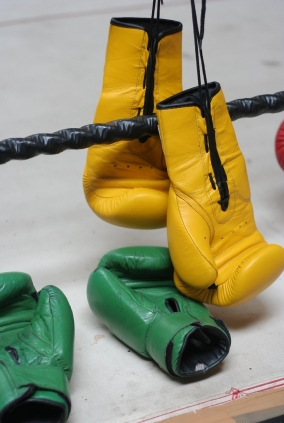
I don’t understand the strategy (beyond try to hit more than you’re hit), the techniques, but most of all, I don’t understand why two adults would willing stand in a ring to be punched by one another.
Most of our lives we try to avoid pain, and yet boxers purposefully put themselves in pain’s path.
It doesn’t make sense.
I know that they are fighting for a prize, but whatever the reward is it does not seem worth the damage that they are doing to their bodies. Perhaps it’s that they focus on the intangible outcomes of winning – self-respect, achievement, perseverance – but to me, it seems like there must be a better way to obtain them.
After all, when you enter the boxing ring the outcome is unsure. You may be at the receiving end of a thunderstorm of punches and not obtain any of the rewards which you seek.
The only situation where it seems like they would be is if you already knew the outcome. If you were certain of victory, the punches and the bruises, the hurt and the agony may not matter as much. They would still cause pain, but you would know that the wounds were worth it.
Scripture often relates our walk with Christ to that of a fight (See I Tim 6:12; Eph. 6:10-18). Christ has said that there will be hurt and pain, discomfort and brokenness along the way. Yet, those wounds are worth it. Because, as my friend once remarked to me, we know that “Jesus wins.” Our victory is assured. Our confidence in the battle unparalleled. . Pain that comes for the sake of the Cross is still pain, but in the end, it won’t matter so much. Because when the bell rings, and the fight is over, when the trumpet sounds and He returns, the prize will be worth the punches, His beauty will be worth the bruises, and eternity with Him will be worth the wounds sustained here.
